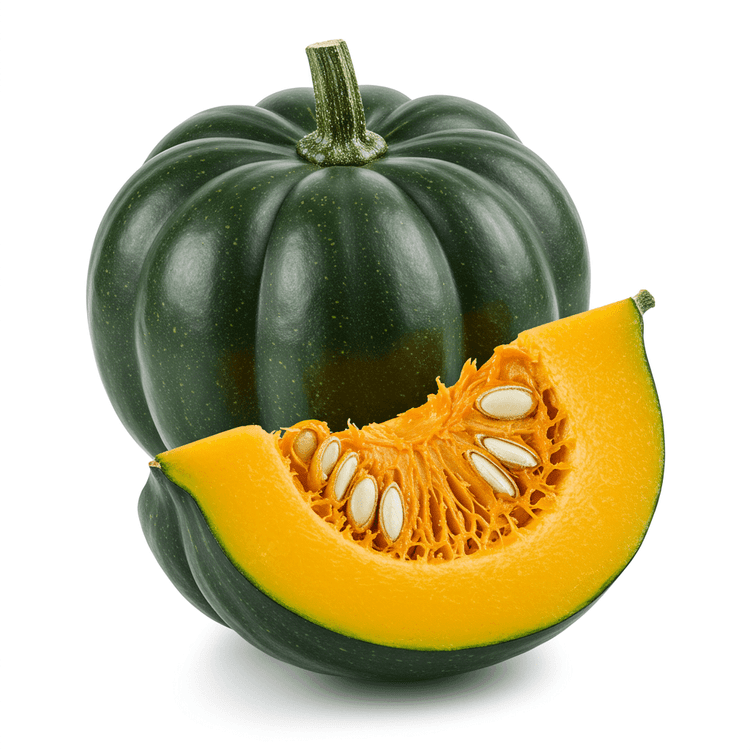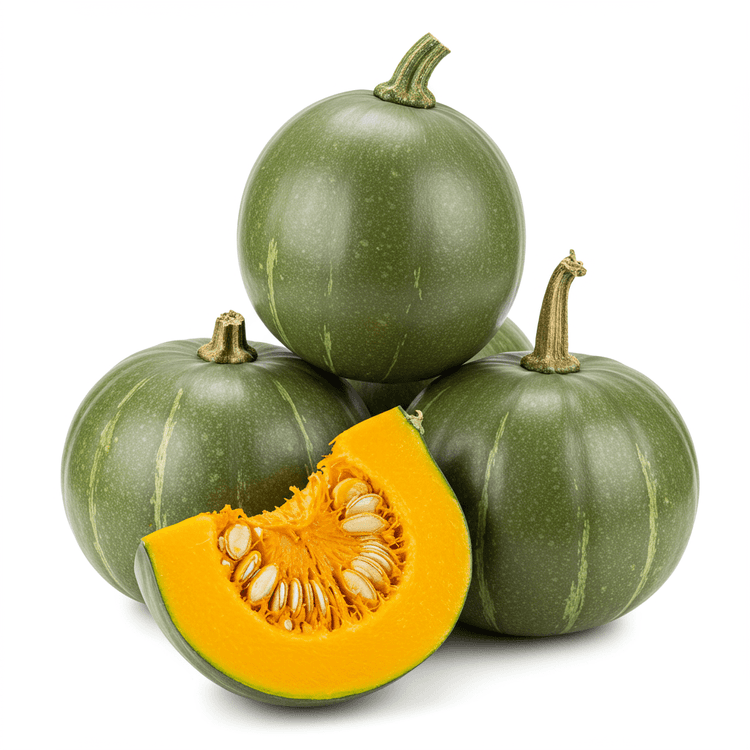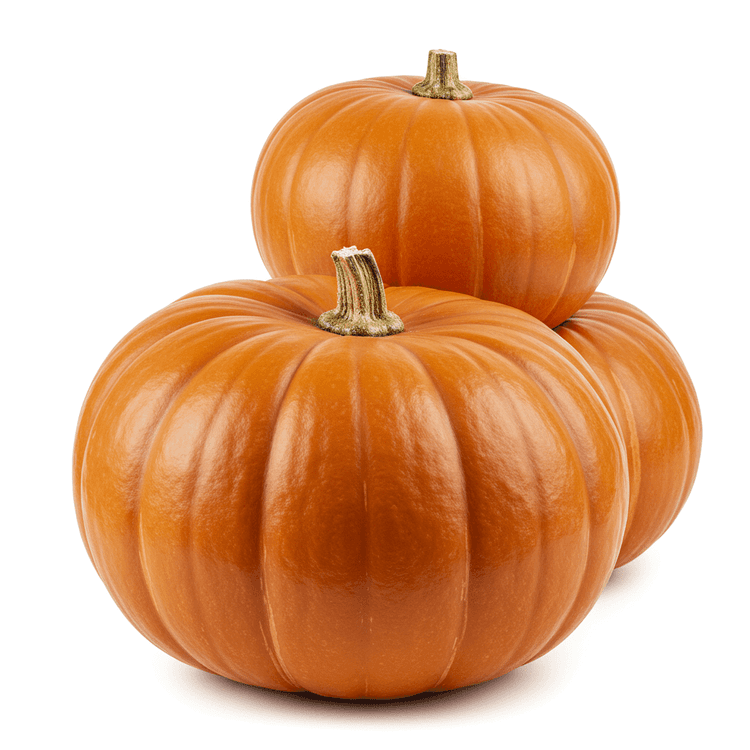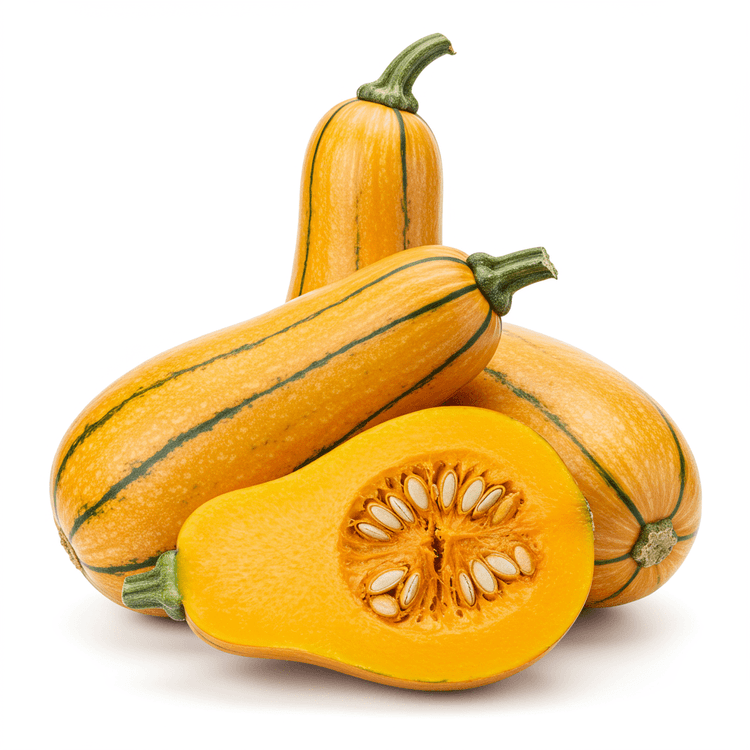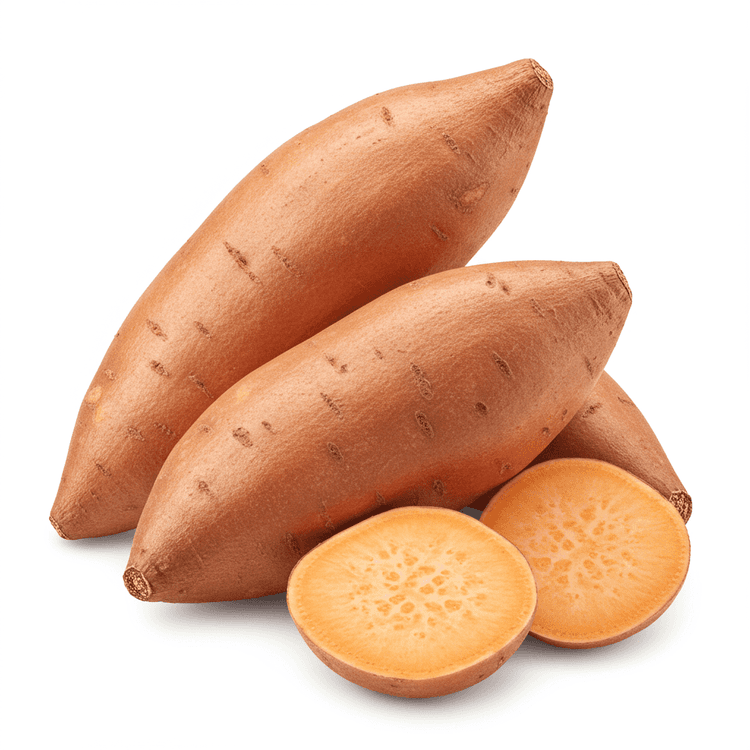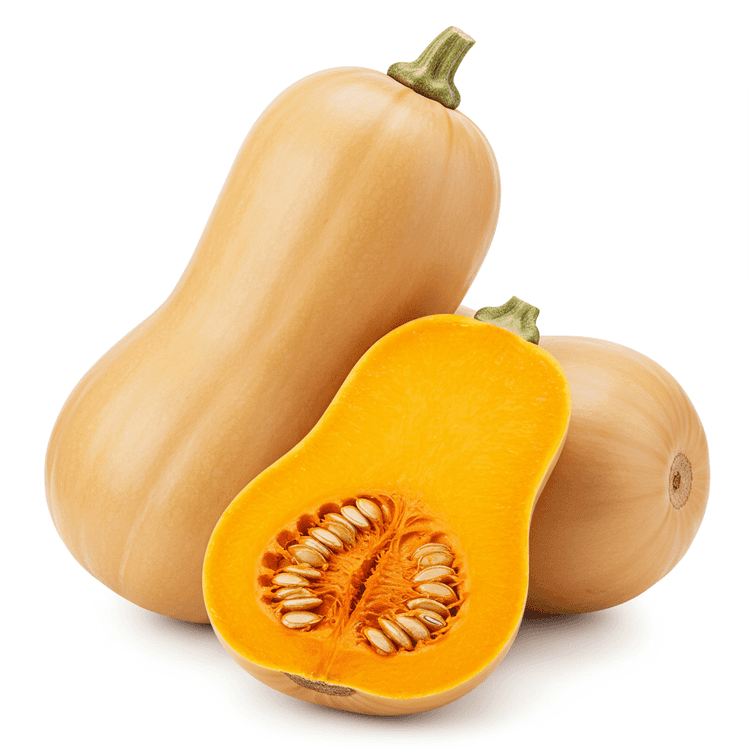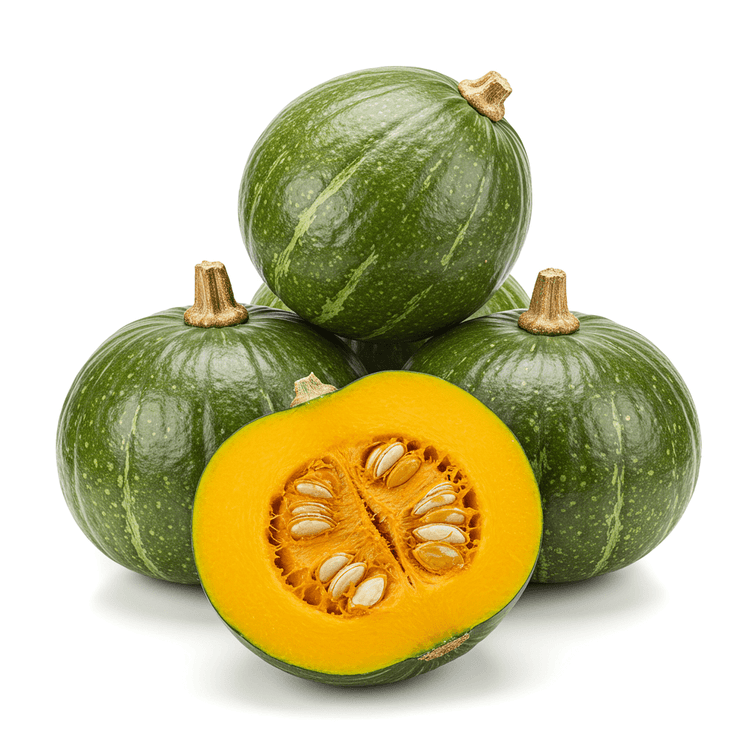
Kabocha Squash
Kabocha squash, also known as Japanese pumpkin, is a winter squash prized for its vibrant orange flesh and subtly sweet, nutty flavor. Its exterior is typically a deep green with bumpy skin, though variations in color exist. When cooked, kabocha squash has a fluffy, almost creamy texture that's delightful. It's a versatile ingredient that can be roasted, steamed, or pureed, making it a healthy and delicious addition to a variety of dishes.
Common Uses
- Roasting kabocha squash brings out its natural sweetness and creates a caramelized exterior, perfect as a side dish or addition to salads. Simply toss with olive oil, herbs, and spices before roasting for a flavorful and healthy side.
- Pureeing cooked kabocha squash creates a smooth and creamy base for soups, stews, and sauces. Its naturally sweet flavor pairs well with savory spices like ginger and nutmeg.
- Using kabocha squash in baked goods like pies, muffins, and breads adds moisture, sweetness, and a beautiful orange hue. It provides a healthy alternative to butter or oil in many recipes.
- Stuffing kabocha squash with grains, vegetables, and protein makes a hearty and visually appealing main course. Consider quinoa, sausage, or wild rice as delicious filling options.
- Adding cubed kabocha squash to curries and stir-fries contributes a unique sweetness and creamy texture. It complements both Indian and Asian-inspired flavors beautifully.
- Grilling kabocha squash slices imparts a smoky flavor and slightly charred exterior. Marinate the squash beforehand for extra flavor and tenderness before grilling.
Nutrition (per serving)
Nutrition (per serving)
Calories
40.0kcal (2%)
Protein
0.7g (1.4%)
Carbs
10.0g (3.64%)
Sugars
2.8g (5.6%)
Healthy Fat
0.0g
Unhealthy Fat
0.0g
% Daily Value based on a 2000 calorie diet
Nutrition (per serving)
Calories
40.0kcal (2%)
Protein
0.7g (1.4%)
Carbs
10.0g (3.64%)
Sugars
2.8g (5.6%)
Healthy Fat
0.0g
Unhealthy Fat
0.0g
% Daily Value based on a 2000 calorie diet
Health Benefits
- Rich in antioxidants like beta-carotene, supporting eye health and reducing risk of chronic diseases.
- Excellent source of vitamin C, boosting the immune system and promoting skin health.
- High in fiber, aiding digestion, promoting gut health and helping to regulate blood sugar levels.
- Contains potassium, contributing to healthy blood pressure and heart function.
- Low in calories and carbohydrates, making it a healthy addition to weight management diets.
- Provides essential minerals like iron, supporting energy levels and overall well-being.
Chefadora AI is here.
Experience smarter, stress-free cooking.
Storage Tips
Whole kabocha squash should be stored in a cool, dry, and dark place like a pantry or cellar. Avoid direct sunlight and temperatures above 75°F (24°C) to prevent spoilage. When stored properly, it can last for several months. Once cut, wrap tightly in plastic wrap or store in an airtight container in the refrigerator. Use within 5-7 days for optimal freshness. You can also freeze cooked kabocha squash puree for longer storage; simply portion it into freezer-safe bags or containers.
Marnirni-apinthi Building, Lot Fourteen,
North Terrace, Adelaide, South Australia, 5000
Australia
